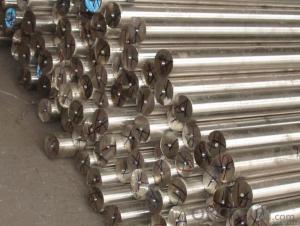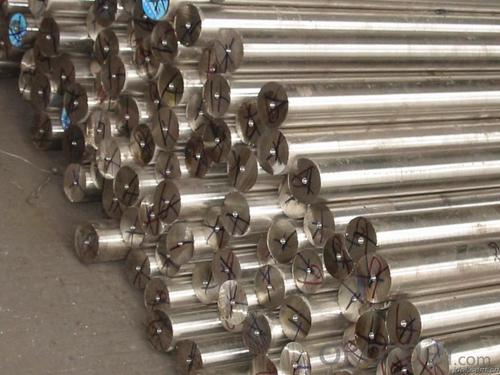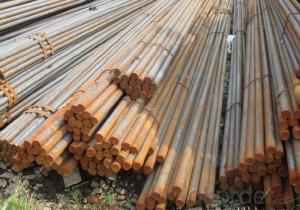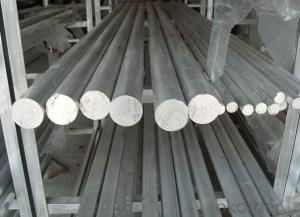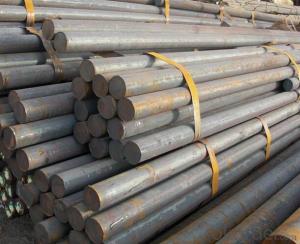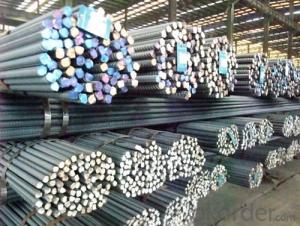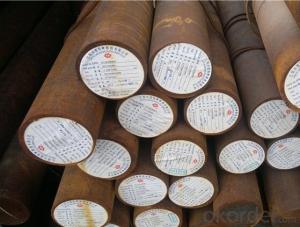Special Steel 17crnimo6 Gear Steel Alloy Steel
- Loading Port:
- China main port
- Payment Terms:
- TT OR LC
- Min Order Qty:
- 25 m.t.
- Supply Capability:
- 10000 m.t./month
OKorder Service Pledge
OKorder Financial Service
You Might Also Like
Specification
17crnimo6 gear steel
Material: | 17CrNiMo6 |
Diameter: | 10mm-1200mm |
Length: | 3000mm-12000mm Straightness: 3mm/M max |
Process: | EAF + LF + VD + Forged + Heat Treatment (optional) |
Delivery condition: | Hot forged +Rough machined (black surface after Q/T)+ Turned (optional) |
Delivery Time: | 30-45 days |
MOQ: | 10 tons |
Heat treatment: | Normalized / Annealed / Quenched / tempered |
Technical Data: | According to the customer's requirement of Chemical Composition, Physical Properties and Mechanical Testing |
Test: | Ultrasonic test according to SEP 1921-84 G3 C/c |
Marking: | Grade, heat NO. length will be stamped one each bar with required color |
Payment: | 30% advance by T\T; Balance pay before the shipment against shipping documents or irrevocable LC at sight |
Application: | Statically and dynamically stressed components for vehicles, engines and machines. For parts of larger cross-sections, crankshafts, gears. |
Product show:

Workshop show:

FAQ:
1, Your advantages?
professional products inquiry, products knowledge train (for agents), smooth goods delivery, excellent customer solution proposale
2, Test & Certificate?
SGS test is available, customer inspection before shipping is welcome, third party inspection is no problem
3, Payment Terms?
30% TT as deposit and 70% before delivery.
Irrevocable L/C at sight.
4, Trading Terms?
EXW, FOB, CIF, FFR, CNF
5, After-sale Service?
We provides the services and support you need for every step of our cooperation. We're the business partner you can trust.
For any problem, please kindly contact us at any your convenient time.
We'll reply you in our first priority within 24 hours.
- Q: What are the typical mechanical properties of special steel?
- The typical mechanical properties of special steel can vary depending on the specific grade and composition. However, some common characteristics include high tensile strength, good ductility, excellent hardness, and resistance to wear and corrosion. Special steels often exhibit superior toughness, heat resistance, and high fatigue strength, making them suitable for demanding applications in industries such as aerospace, automotive, and construction.
- Q: What are the requirements for special steel used in automotive parts manufacturing?
- The requirements for special steel used in automotive parts manufacturing are specific and crucial to ensure superior performance, safety, and durability of the vehicles. Here are some of the key requirements for special steel used in automotive parts manufacturing: 1. Strength and Hardness: Special steel used in automotive parts needs to have high strength and hardness to withstand the extreme stresses and loads that automotive components experience. This ensures the parts can endure heavy usage, resist deformation, and prevent failure under demanding conditions. 2. Ductility and Toughness: While being strong and hard, special steel must also possess good ductility and toughness. Ductility allows the steel to be formed and shaped into various intricate automotive parts, while toughness ensures that the parts can absorb energy and resist fracture or cracking upon impact. 3. Corrosion Resistance: Automotive parts are constantly exposed to various environmental conditions, including moisture, humidity, and road salts. Special steel used in automotive parts must exhibit excellent corrosion resistance to prevent rust and deterioration, thereby increasing the longevity and reliability of the parts. 4. Weldability: As automotive parts are often assembled through welding processes, it is essential for special steel to have good weldability. This allows for efficient and secure joining of different components, ensuring structural integrity and minimizing the risk of weld defects. 5. Heat Resistance: Special steel used in automotive parts manufacturing should have sufficient heat resistance to withstand high temperatures generated during engine operation, friction, or other thermal processes. This ensures that the steel maintains its mechanical properties even under extreme heat conditions, preventing premature failure or deformation. 6. Fatigue Strength: Automotive parts are subjected to repeated loading and unloading cycles, leading to fatigue failure if the steel does not have adequate fatigue strength. Special steel should possess high fatigue strength to withstand cyclic loading and resist fatigue cracks, enhancing the durability and reliability of the parts. 7. Dimensional Stability: Automotive parts need to maintain their shape and dimensions over time to ensure proper fit and functionality. Special steel used in manufacturing should exhibit dimensional stability, minimizing any warping or distortion during heat treatment or operational conditions. 8. Cost-effectiveness: While meeting the above requirements, special steel should also be cost-effective for automotive parts manufacturing. This means that the steel should be reasonably priced, readily available, and offer a good balance between cost and performance. Meeting these requirements is crucial for manufacturers to produce high-quality automotive parts that meet industry standards, perform optimally, and contribute to the overall safety and performance of vehicles.
- Q: What are the main advantages of using special steel in the oil and gas industry?
- The main advantages of using special steel in the oil and gas industry include its high strength, corrosion resistance, and ability to withstand extreme temperatures and pressures. Special steel is specifically designed to meet the demanding requirements of the industry, ensuring the integrity and reliability of equipment and structures. It also offers excellent weldability, allowing for efficient fabrication and installation processes. Overall, the use of special steel enhances safety, durability, and performance in oil and gas operations.
- Q: What are the different methods for improving the magnetic properties of special steel?
- Improving the magnetic properties of special steel can be achieved through various methods. One effective approach is heat treatment, which involves subjecting the steel to specific heating and cooling processes. This alters the atomic structure of the steel, enhancing its magnetic properties. For example, annealing the steel at high temperatures and slowly cooling it can create a fine-grained microstructure, resulting in improved magnetic performance. Another method is alloying, where certain elements like nickel, cobalt, or aluminum are added to the steel. Even small amounts of these alloying elements can significantly enhance the steel's magnetic characteristics, increasing its saturation magnetization and improving coercivity. Cold working, also known as cold deformation, is another technique that can improve the steel's magnetic properties. By subjecting the steel to mechanical stress at low temperatures, dislocations and defects are formed within its crystal structure, leading to improved magnetization, permeability, and reduced hysteresis losses. Grain orientation is yet another method to improve the magnetic properties of special steel. This involves aligning the grains of the steel in a specific direction through processes like hot rolling or magnetic annealing. This alignment results in anisotropic magnetic properties, meaning the steel will exhibit different magnetic characteristics depending on the direction of the applied magnetic field. Surface treatments can also be utilized to enhance the magnetic properties of special steel. Coatings such as electroplating, electroless plating, or chemical vapor deposition can modify the steel's surface, improving its magnetic performance. These treatments reduce eddy current losses, enhance corrosion resistance, and increase magnetic permeability. It is important to consider specific requirements and desired characteristics when choosing a method to improve the magnetic properties of special steel. Each method has its own advantages and limitations, and factors like cost, feasibility, and desired magnetic performance should be taken into account.
- Q: How does special steel contribute to the oil and gas industry?
- Special steel plays a crucial role in the oil and gas industry by providing strength, corrosion resistance, and durability to equipment and infrastructure. It is used in the construction of pipelines, drill pipes, wellheads, valves, and various other components. The unique properties of special steel enable it to withstand harsh operating conditions, high pressures, and corrosive environments, ensuring the reliability and safety of oil and gas operations.
- Q: What are the main factors affecting the creep resistance of special steel?
- The main factors affecting the creep resistance of special steel are the alloy composition, the microstructure, and the processing conditions. The specific combination of alloying elements and their concentrations significantly influence the material's ability to resist deformation under elevated temperatures and constant stress. Additionally, the microstructure, including grain size and distribution, plays a crucial role in determining the material's creep resistance. The processing conditions, such as heat treatment and thermal cycling, can further affect the creep performance by altering the material's microstructure and mechanical properties.
- Q: What are the applications of special steel in the electronics industry?
- Special steel is widely used in the electronics industry due to its unique properties and benefits. Some of the applications of special steel in this industry include the manufacturing of electronic components, such as connectors, springs, and contacts, which require high strength and corrosion resistance. Special steel is also used in the production of magnetic cores for transformers and inductors, as it exhibits excellent magnetic properties. Additionally, special steel is utilized in the fabrication of precision tools and equipment used in electronics manufacturing processes, ensuring high precision, durability, and reliability. Overall, the applications of special steel in the electronics industry contribute to enhanced performance, efficiency, and longevity of electronic devices and systems.
- Q: What are the main characteristics of structural steel forgings?
- Structural steel forgings offer numerous advantageous qualities that make them highly suitable for a wide range of construction and engineering purposes. To begin with, the outstanding strength and durability of structural steel forgings are among their main attributes. Steel possesses remarkable tensile strength, allowing it to bear heavy loads and withstand stress-induced deformations. This makes structural steel forgings ideal for supporting large structures and withstanding dynamic forces such as wind or seismic activity. Another noteworthy quality is the versatility of structural steel forgings. Steel can be shaped and sized into a diverse array of forms, making it adaptable to various design requirements. It can be forged into intricate and complex shapes, enabling the creation of precise and customized components. This versatility enables the application of structural steel forgings in a multitude of scenarios, ranging from beams and columns in buildings to bridges and offshore structures. Moreover, structural steel forgings exhibit excellent weldability. Various welding techniques can be employed to easily join steel components together, creating robust and dependable connections. This enhances the overall structural integrity and longevity of steel elements. One more key characteristic of structural steel forgings is their cost-effectiveness. Steel is an economical construction material due to its abundance, recyclability, and ease of manufacturing. The production process for steel forgings is efficient and can be scaled up to meet the demands of large-scale construction projects. Consequently, it represents a cost-effective choice for numerous applications. Furthermore, structural steel forgings are renowned for their resistance to corrosion. Steel can be treated with coatings or alloys to enhance its resistance against rust and other forms of corrosion. This makes it highly suitable for deployment in environments with high humidity, exposure to saltwater, or harsh weather conditions. In conclusion, the exceptional strength, versatility, weldability, cost-effectiveness, and resistance to corrosion are the primary characteristics of structural steel forgings. These qualities position structural steel forgings as the preferred choice for a multitude of construction and engineering applications, offering durability, reliability, and longevity to structures.
- Q: What are the different methods for joining special steel components?
- There are several methods for joining special steel components, including welding, brazing, soldering, and mechanical fastening. Welding involves melting the base metals and adding a filler material to create a strong bond. Brazing and soldering use a lower melting point filler material to join the components. Mechanical fastening includes methods like bolts, screws, and rivets to hold the components together. Each method has its own advantages and is chosen based on the specific requirements of the application.
- Q: How does special steel contribute to weight reduction in manufacturing?
- Special steel is a type of steel that has been specifically engineered to possess certain characteristics that make it suitable for various applications in manufacturing. One of the key advantages of special steel is its ability to contribute to weight reduction in manufacturing processes. Special steel is often utilized in industries where weight reduction is crucial, such as automotive, aerospace, and construction. This is because special steel possesses a high strength-to-weight ratio, meaning it can provide the required strength and performance while being lighter in weight compared to other materials. By using special steel in manufacturing processes, companies can achieve weight reduction in several ways. Firstly, the lightweight nature of special steel allows for the production of components and structures that are significantly lighter than those made from conventional steel or other materials. This reduction in weight can have numerous benefits, including improved fuel efficiency in automobiles, increased payload capacity in aircraft, and easier handling and installation in construction projects. Additionally, special steel's high strength-to-weight ratio enables manufacturers to design and produce thinner, yet equally strong, components. This not only reduces the overall weight of the manufactured product but also allows for more efficient use of materials, leading to cost savings and a more sustainable manufacturing process. Furthermore, special steel's unique properties, such as its excellent formability and weldability, enable manufacturers to create complex and intricate designs that can further contribute to weight reduction. This versatility allows for the production of lightweight components with intricate shapes and structures, which can enhance overall performance and functionality. In summary, special steel plays a crucial role in weight reduction in manufacturing processes. Its high strength-to-weight ratio, lightweight nature, excellent formability, and weldability enable the production of lighter components and structures. By utilizing special steel, industries can achieve improved efficiency, performance, and sustainability in their manufacturing operations.
Send your message to us
Special Steel 17crnimo6 Gear Steel Alloy Steel
- Loading Port:
- China main port
- Payment Terms:
- TT OR LC
- Min Order Qty:
- 25 m.t.
- Supply Capability:
- 10000 m.t./month
OKorder Service Pledge
OKorder Financial Service
Similar products
Hot products
Hot Searches
Related keywords
